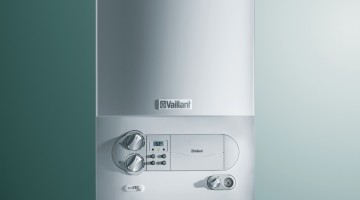
A Gas Safety certificate is a legal requirement for all rental properties in the UK where there are gas appliances present. If you live in a rented home, it is the landlord’s responsibility to get a certificate, but if you own your own home you should consider getting one yourself.
Early Autumn is the best time to get a Gas Safety certificate, before you feel the need to switch on your heating and while competition for installers is low. The check ensures that all your appliances are working as they should and that there is adequate ventilation. Carbon monoxide can kill pretty quickly, and as it’s invisible and odourless, it can be difficult to detect. Therefore it’s really important to check appliances are not leaking gas. Aside from providing peace of mind, there are other reasons to make sure you get a certificate regularly.
Why get a Gas Safety certificate?
Landlords
If you’re a landlord it is a legal requirement that you get a certificate yearly for all pipe work, gas appliances and flues in your property. Without this, you will not be allowed to lease the property and could be fined up to £6000 (or even face prison). Legally, those with lodgers or even exchange students also come under this remit. If you’re not sure whether you have to get one or not, you can check here.
You must also install smoke alarms in your rented properties, and carbon monoxide detectors if you have a coal fire or wood burning stove.
Landlords are not responsible for ensuring the safety of gas appliances separately owned by tenants.
Homeowners
If you own your own home/gas appliances, a Gas Safety certificate isn’t mandatory, but you may want to get one nonetheless, for a number of reasons:
- To ensure the safety of those in your home.
- It may be a requirement of your insurance.
- The long-term manufacturer warranty of some appliances might stipulate that you need a Gas Safety check annually.
How much does a Gas Safety certificate cost?
Depending on what part of the country you’re in, Gas-safe engineer will normally charge around £50 for 3 appliances, and around £10 for any additional appliances.
It may be worth ringing around to check the quote you’ve been given is reasonable.
What does an inspection involve?
A Gas Safe registered engineer will come to your house and inspect gas pipework, gas cookers, gas boilers, gas fires and gas water heaters. They will check for the following:
- Gas tightness of appliances
- Whether there is adequate ventilation
- Safety brackets
- Flue flow
- All flame failure devices will be checked for satisfactory operation.
- Presence and effectiveness of stability brackets.
The engineer sends your landlord a record of what was checked and any problems found. If there are any serious problems with gas appliances, the engineer must make them safe. This could involve disconnecting faulty equipment and arranging for your gas supply to be cut off.
The whole process should only take around an hour and will keep those in your home safe!












great information sharing for gas safety certificates. as it is legal requirement for rental properties as well as legal requirement for landlords but one thing in blog is confusing to me. that is the cost of gas safety certificate. you mentioned cost around £50 for 3 appliances, and around £10 for any additional appliances. Is it annual cost or need to get gas certificate only once in a life?
A gas safety certificate is an annual requirement. Generally I would say that the more appliances you have the more it costs to get the certificate. A gas fire for example can take more time in conjunction with a boiler and £50 just isn’t feasible financially for almost twice the work. This in part why some long term landlords and letting someone prefer installing electric hobs, cookers and fires in order to reduce the subsequent annual costs and risk to life.
Very Informative article. Your content is very instructive. People generally ignore these things but we need to be really aware of it. We need to take services from certified and trustworthy service providers. Thanks for sharing!!
Thanks Liam – Gas safety certificates are very important!